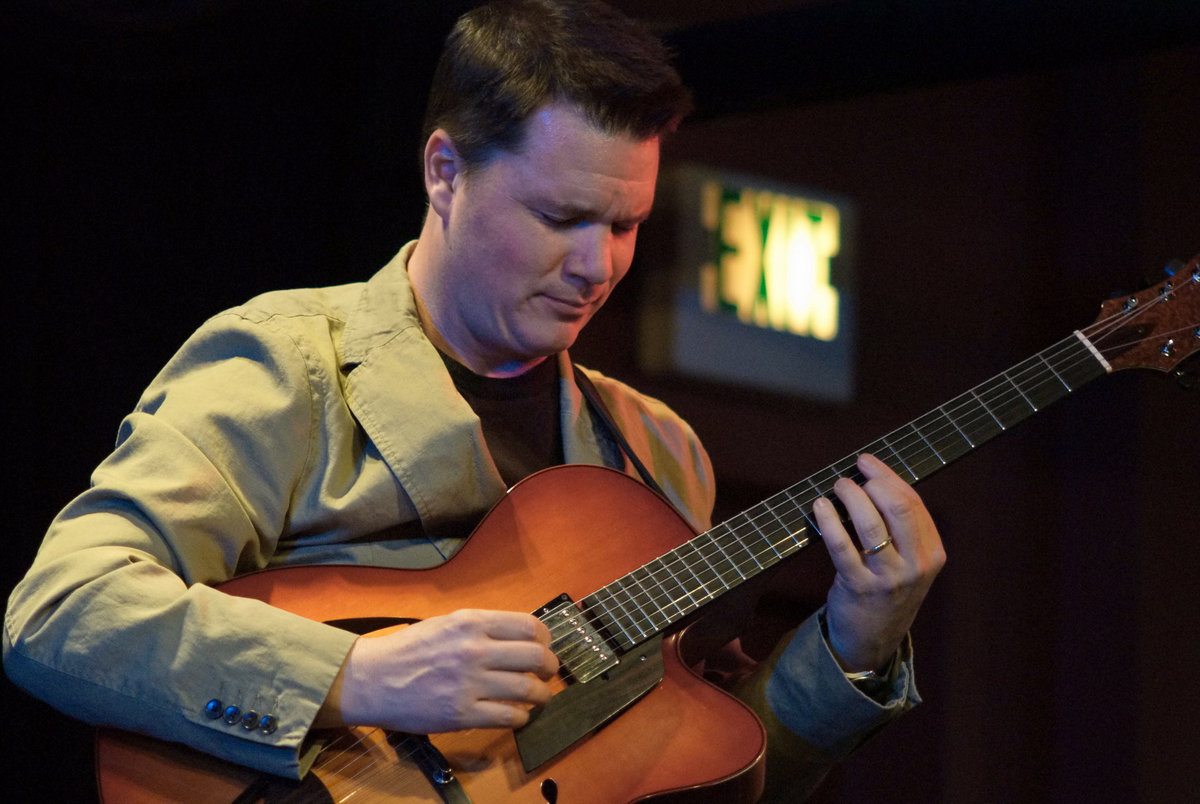
NPR’s sites use cookies, similar tracking and storage technologies, and information about the device you use to access our sites (together, “cookies”) to enhance your viewing, listening and user experience, personalize content, personalize messages from NPR’s sponsors, provide social media features, and analyze NPR’s traffic. This information is shared with social media, sponsorship, analytics, and other vendors or service providers. See details.
You may click on “Your Choices” below to learn about and use cookie management tools to limit use of cookies when you visit NPR’s sites. You can adjust your cookie choices in those tools at any time. If you click “Agree and Continue” below, you acknowledge that your cookie choices in those tools will be respected and that you otherwise agree to the use of cookies on NPR’s sites.

Monk's Moods, released in 2002, is a big, brassy affair, loaded with a full palette of colors and sonorities that somehow sound oddly natural draping Monk melodies. Perhaps the best moment on the. The Best of Thelonious Monk Richard Brody reviews “The Complete Riverside Recordings” of Thelonious Monk, a fifteen-disk set of his sessions, in the studio and live, for the label. Article by The New Yorker.
Monk's Music is often cited as one of the focal points of Thelonious Monk's six-year affiliation (1955-1961) with the Riverside label. Although the original disc clocked in at slightly over 30 minutes, packed into that half hour are not only the introduction of a few of Monk's signature compositions, but also some amazing interactions from the assembled ensemble. Joining Thelonious Monk (piano) during these two recording sessions are Ray Copeland (trumpet), Gigi Gryce (alto sax), Coleman Hawkins (tenor sax), John Coltrane (tenor sax), Wilbur Ware (bass), and Art Blakey (drums). The true meaning of the album's title exists beyond just Thelonious, as the opening sacred prelude, 'Abide With Me,' was written by William H. Monk. This brief piece features only the horn quartet, foreshadowing their importance throughout the album. The angular stride style featured during the chorus of 'Well You Needn't' is tackled with the same nimble authority as Monk's completely unfettered solos. If his ability to swing and his utilization of atomic clock accuracy have ever been questioned, the answer lies no further. So utterly free and fantastic, certain passages command immediate review to be fully comprehended. Hearing Coltrane and Hawkins together is admittedly part of the charm in these sides. 'Ruby, My Dear' is bathed in the smoky essence of Hawkins' rich textures and Coltrane's playful cat-and-mouse aggression. Blakey gently propels the rhythm, never getting in the way and sporting a serene snare groove throughout. 'Off Minor' is largely led by Monk, with solos that follow into and out of the memorable chorus that sparkles with the full involvement of the horn and rhythm sections. The same is true for this definitive version of 'Epistrophy' -- perhaps the zenith collaborative effort between Coltrane and Monk. Additionally, Blakey is in top form, with a solo that borders on spastic precision.
- The only new Thelonious Monk composition on is ‘Bright Mississippi’, but the effortless swing and interplay of this session have made Monk’s Dream the leader’s best-selling album for good reason, with Rouse in particular sounding fully in charge.
- Complete Live at the Five Spot 1958 by John Coltrane/Thelonious Monk/Thelonious Monk Quartet (CD, May-2013, American Jazz Classics) 5 out of 5 stars (1) Total Ratings 1.
- “Don’t play everything (or every time); let some things go by What you don’t play can be more important than what you do.” — Thelonious Monk In 1960 Thelonious Monk (October 10, 1917 – February 17, 1982) delivered his 25 Tips for Musicians. Could Monk’s eccentric compositions, and piano playing noted for dissonances, Continue reading 'Thelonious Monk’s 25 Tips for.
Monk Piano
| Sample | Title/Composer | Performer | Time | Stream |
|---|---|---|---|---|
| 1 | Thelonious Monk / Thelonious Monk Septet | 00:55 | ||
| 2 | Thelonious Monk / Thelonious Monk Septet | 11:27 | ||
| 3 | Thelonious Monk / Thelonious Monk Septet | 05:28 | ||
| 4 | Thelonious Monk / Thelonious Monk Septet | 05:11 | ||
| 5 | Thelonious Monk / Thelonious Monk Septet | 10:48 | ||
| 6 | Thelonious Monk / Thelonious Monk Septet | 04:40 | ||
| 7 | Thelonious Monk / Thelonious Monk Septet | 05:15 | ||
| 8 | Thelonious Monk / Thelonious Monk Septet | 04:44 |
The Blue Note Years

